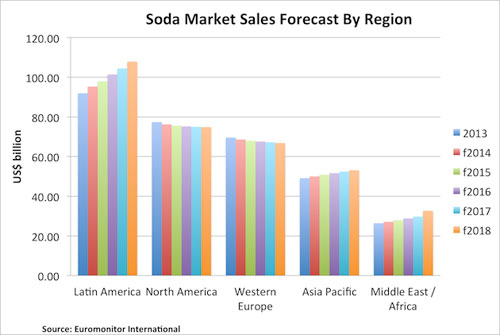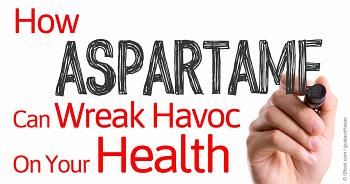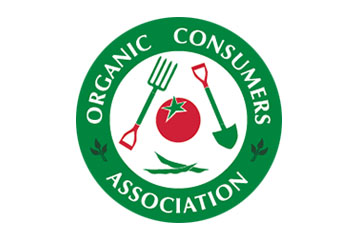By Dr. Mercola
According to the latest statistics,1
38 percent of American adults were obese in 2014 — an increase of 3
percent compared to 2012. A decade ago, in 2004, about 32 percent of
adults fell in the obese category.
While many still consider obesity primarily a cosmetic issue, the health
ramifications of obesity are indeed severe. The fact that 1 in 5 U.S. deaths is now related to obesity really drives home that point.
Over the years, researchers have investigated the notion that you can be
overweight yet still be metabolically healthy; but while there are
outliers, this simply does not hold true for the vast majority of
people.
Why Obesity Will Never Be Healthy
Being slim is not necessarily proof of being healthy. Metabolic
dysfunction easily can strike anyone not following an optimized diet.
However, carrying excess weight virtually guarantees you'll suffer
health problems.
This is why childhood obesity is such a grave concern, as obese children
are likely to suffer the consequences much earlier in their adult life.
Cancer is one major hazard. Worldwide, obesity is responsible for half a million cancers each year.
The insulin and leptin resistance that comes with obesity also results
in chronic inflammation; a factor linked to a range of health problems,
including but not limited to:
- Type 2 diabetes
- Hypertension
- Heart disease and stroke
- Arthritis
- Gallbladder disease
According to research2 published in 2013, there's no such thing as being healthy and obese.
The study, a systematic review and meta-analysis that included data
from more than 61,000 people, found that obese individuals were more
likely to die sooner or have heart-related problems than people of
normal weight.
Moreover, this held true even if they were otherwise healthy, which led the researchers to conclude:
"Compared with metabolically healthy normal-weight individuals,
obese persons are at increased risk for adverse long-term outcomes even
in the absence of metabolic abnormalities, suggesting that there is no
healthy pattern of increased weight."
Obesity Impairs Both Kidney and Liver Function
Obese people are nearly 7 times more likely to develop kidney problems compared to those of normal weight.3 Being overweight but not obese raises your risk of kidney disease by 3.5 times.
Non-alcoholic fatty liver disease (NAFLD) is another common health risk. Alcohol consumption
is a leading cause of fatty liver, but in the case of NAFLD, it occurs
in people who are overweight or obese, have high cholesterol or high
triglycerides, and who consume little or no alcohol at all.
Studies show millions of children in the U.S. suffer from NAFLD, which
prevents the liver from functioning properly. Among obese children and
adolescents, NAFLD has been identified in 38 percent of American
children and adolescents,4 which raises their risk of eventually needing a liver transplant.
Cases of pediatric NAFLD have even been reported in children as young as
3 years old! This simply could not happen were it not for a seriously
improper diet right from the start.
In the absence of alcohol, the primary culprit is processed fructose,
which your body processes in a way very similar to alcohol. And, while
processed fructose is found in most processed foods, one of the primary
sources is soda and other sugary beverages like fruit juices.
In pediatric cases, high-fructose infant formulas may also be at fault. By causing mitochondrial dysfunction, refined sugar and processed fructose also promote a wide array of other chronic diseases as well.
Obesity Linked to Memory Impairment and Dementia
Obesity has also been linked to an increased risk of memory problems, dementia, and Alzheimer's. In one recent study,5
healthy mice of normal weight outperformed overweight mice on spatial
memory tests — tests that rely on a well-functioning hippocampus.
As reported by Scientific American,6
further investigation revealed that "four genes associated with memory
formation were not expressed as strongly in the obese mice — suggesting
that their obesity had somehow influenced how cells 'read' these genes."
According to co-author David Sweatt, Ph.D.: "One of the particularly
exciting things is that this finding links two hot areas of
neuroscience: epigenetic mechanisms and cognitive effects of obesity."
This study was the first to show that reduced expression of one gene in
particular, called Sirtuin 1 (Sirt1), appears to be the central cause
for obesity-induced memory impairment.
Interestingly, when obese mice were given supplemental resveratrol,
known for its potent antioxidant effects, their memory function improved
to the point of being indistinguishable from the healthy mice, believed
to be due to resveratrol activation of the Sirt1 gene, thereby
protecting memory function.
While it's unclear whether targeting Sirt1 in obese humans would result
in the same improvements, this research adds support to other recent
studies showing resveratrol may help slow the onset or progression of vascular dementia and Alzheimer's disease.
Soda — A Major Culprit in the Obesity Epidemic
Soda is a major culprit driving the obesity trend and associated health
problems. Unfortunately, the soda industry has been very effective in
its efforts to deceive you about this fact. Compared to studies without
any financial conflicts of interest, research funded by the beverage and
sugar industries is five times more likely to conclude there's "no
link" between sugary beverages and weight gain.7
The industry has also spent large sums of money to convince you that
soda can be enjoyed as part of a healthy lifestyle, provided you
exercise enough. The problem is, while you certainly burn more calories when you exercise, you cannot burn
off thousands of excess calories each day. For example, just to offset a
one soda per day habit, you have to walk one hour per day.
According to a 2015 meta-review8
published in the Mayo Clinic Proceedings, once you reach 18 percent of
your daily calories from added sugar, there's a two-fold increase in
metabolic harm that promotes pre-diabetes and diabetes.
Moreover, research suggests sugary beverages
alone are to blame for about 183,000 deaths worldwide each year,
including 133,000 diabetes deaths, 44,000 heart disease deaths, and
6,000 cancer deaths. Fortunately, consumers across the Western world are
becoming aware of these shady tactics and the connection between sugar
and obesity. As a result soda sales have slowly but surely declined over
the past decade.
Unfortunately, taking a page out of the tobacco industry’s playbook,
Big Soda has simply shifted its focus to low-to middle income
countries to offset declining sales in developed nations.
This will mean but one thing — the same health problems now plaguing
Western nations will steadily surge in areas where public health
education and health care is already lacking, which will invariably lead
to the same complications experienced in Western nations.
As Sales Drop, Soda Manufacturers Set Their Sights on Developing Nations
According to a Center for Science in the Public Interest (CSPI) report titled "Carbonating The World,"9,10,11
U.S. consumption of sugary beverages decreased by 25 percent between
1998 and 2014, thanks to increased awareness about the dangers of sugar
in general, and soda in particular. To offset declining sales, companies
like Coca-Cola and Pepsi have shifted their focus to other countries
such as Mexico and Africa.
Coca-Cola's projected investment in Mexico between 2010 and 2020 is
$12.4 billion. During that same time frame, they're also investing $17
billion to further soda sales on the African continent.
In 2013, Mexico had the highest per capita consumption of soda in the
world, with the average Mexican downing 135 liters of the sweet stuff
each year. Between 1999 and 2006, calories from soda tripled in certain
age groups, and childhood obesity and diabetes rates have seen a steady
climb.
As noted in the report:
"The effects of intensive marketing of sugar drinks may best be
seen in Mexico. That country is one of the biggest consumers of those
drinks and has some of the highest rates of obesity in the world. The
Mexican government is seeking to reverse that health crisis by imposing a
modest excise tax on sugar drinks (and a sales tax on snack foods),
with industry fighting back vigorously.
However, few other countries have adopted any measures to prevent
or reduce excessive consumption of sugar drinks and the serious health
and costly health-care consequences that are sure to follow."
Crazy as it may seem, Coca-Cola is even receiving subsidies to facilitate its reach into Africa and Asia.12
The International Finance Corporation (IFC), a unit of the World Bank,
has given Coca-Cola bottlers in Africa and South Asia tens of millions
of dollars in loans and direct investments to expand sales in foreign
markets in Vietnam, Cambodia, Laos, Nepal, Sri Lanka, Ethiopia, Kenya,
Mozambique, Tanzania, and Uganda.
In 2013, Coca-Cola and IFC began a three-year, $100 million
initiative to provide financing to female entrepreneurs in Eurasia and
Africa.

Source: Bloomberg Business
Soda Politics
Download Interview Transcript
Marion Nestle, Ph.D., M.P.H is the author of "Soda Politics:
Taking on Big Soda (and Winning)." In this fascinating exposé, she
reveals just how pervasive the soda industry's influence really is.
Nestle was the chairman of Department of Nutrition, Food Studies and
Public Health at New York University for 15 years. She's a staunch
advocate for public health and a leading voice in helping people
understand these issues.
To sum up her recommendation: "The first thing you should do if you're
trying to control your weight is stop drinking sugary beverages."
The soda industry is well aware of the connection between soda
consumption and obesity and obesity-related diseases. Soda companies
are by law required to inform the Securities and Exchange Commission
(SEC) about vulnerabilities, and for the last decade Coca-Cola has been
telling the SEC that obesity is the No. 1 threat to soda industry profits.
As people get fatter, and wisen up to the fact that soda is at fault,
sales go down. Soda companies are very aware of this, which is why they
try to hide the truth to whatever extent possible.
Part of Nestle's book reveals how collaborations have been established
with communities that have essentially been "paid off" to increase soda
sales, and the same pattern can be seen overseas as well, with
poverty-stricken women being offered loans to become soda distributors.
In a place like Africa, soda is the absolute last thing anyone needs, let alone children. As noted in CSPI's report:
"With close to 250 independent bottling partners, Coca- Cola is
distributed to remote villages in every African country — yet an
estimated 30 to 50 percent of children in sub-Saharan Africa have no
access to essential medicines."
Making soda also requires a surprising amount of water, which is
becoming an increasingly rare commodity. Soda companies estimate it
takes about 1.3 liters of water to manufacture one liter of soda. This
does not include the amount of water needed to clean the plant, wash the
bottles, and other sanitary tasks. Nor does it include the water used
to grow the corn and sugar.
Independent groups that include these add-ons have come up with
estimates of anywhere from 300 to 600 liters of water per liter of soda!
Lifestyle-Related Diseases on the Rise in Developing Nations
As soda and junk food manufacturers are improving their reach into some
of the most impoverished areas on the globe, lifestyle related diseases
have seen an upswing there too. As recently reported by Scientific
American,13 while life expectancy has risen around the world, greater numbers of people live longer with chronic debilitating illnesses.
"In developed countries the trouble comes almost entirely from
noncommunicable conditions such as heart and lung disease and back pain —
ills typically associated with lifestyle choices such as diet and
exercise. In developing nations, however, the prevalence of these
ailments is increasing rapidly, even as those countries continue to try
to stamp out communicable diseases such as diarrhea and malaria that
have plagued them for a long time."
According to a report14 by The Institute for Health Metrics and Evaluation, the No.1 cause of global disease, among all age groups, is now related to behavioral factors, and non-communicable disease has overtaken communicable diseases as the No.1 cause of mortality.
CSPI Calls for Vigorous Action to Combat Intense Soda Marketing
In their report, CSPI calls for governments around the world and the
World Health Organization (WHO) to prioritize nutrition and take action
to restrict consumption of sugary beverages. To combat aggressive soda
marketing, CSPI offers the following suggestions:
Require warning labels on sugary beverage containers and in advertising. A recent study15 suggests this might be an effective way to change parents' shopping behavior for their kids.
In this study, the labels included variations of the warning that sugary
beverages could cause "obesity," "weight gain," or "preventable
diseases" as well as "type 2 diabetes."
When carrying a warning label, 40 percent of parents chose to buy it, compared to 60 percent when the beverage was unlabeled |
Tax sugary beverages, and use the revenue for health programs.
In Mexico, where a 10 percent tax on sugary beverages was enacted as of
January 1, 2014, sales of such beverages shrunk by 12 percent in one
year16 |
| Bar soda sales in schools |
Ban advertising in child-directed media |
| Bar sugary drinks on children's restaurant menus |
Instruct health ministries to focus on improved nutrition, and restrict sugar content to about one-fourth of current levels |
| Limit or ban sugar drinks on government property |
Improve product labeling (Ecuador and Chile are cited as two good
examples; both require easy-to-read nutrition labels for foods high in
added sugars) |
Join the Growing Number of People Saying 'No' to Soda
If you struggle with weight or health issues, please give some serious
thought to replacing soda and other sweet drinks, including fruit
juices, with pure water. If you need some flavor, try adding a squirt of
lime or lemon juice to still or sparkling water. Tea is another option.
Just avoid adding sugar, and steer clear of bottled varieties as
they're usually chockfull of added sugars.
If you find it difficult to quit, don't be discouraged. Many are actually addicted to soda. To break free, be sure to address the emotional component of your food cravings using tools such as the Emotional Freedom Techniques (EFT).
A version referred to as Turbo Tapping tends to be particularly useful
for eliminating soda addiction in a short amount of time.
If you still have cravings after trying EFT or Turbo Tapping, you may need to make some changes to your diet. My free nutrition plan can help you do this in a step-by-step fashion.
Remember, sweetened beverages, whether sweetened with sugar, HFCS, naturally occurring fructose, or artificial sweeteners like fr,
are among the worst culprits in the fight against obesity and related
health problems, including diabetes and heart and liver disease, just to
name a few. Ditching ALL of these types of beverages can go a long way
toward reducing your risk for chronic health problems and weight gain.


















